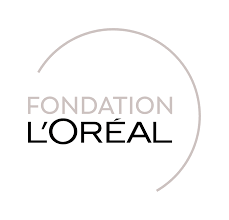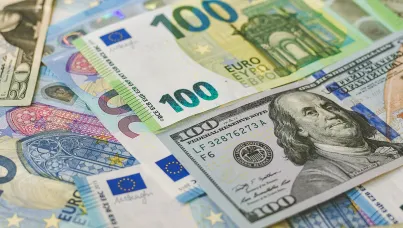One in two women scientists say they have experienced sexual harassment at work
Key figures
- One in two (49%) women scientists say they have personally experienced at least one situation of sexual harassment during their career.
- For almost half of the women scientists who have been victims of sexual harassment (47%), it occurred in the last five years, after the emergence of the #MeToo movement; for almost a quarter of the victims (24%), it occurred in the last two years.
- For 65% of them, the sexual harassment situation(s) they faced had a negative impact on their engagement in science and their career.
- However, just over half of the victims of sexual harassment (53%) have spoken out about it, with only one in five (19%) speaking out within their institution.
- Seven out of 10 scientists feel that sexism and sexual harassment in research are not talked about enough.
- And 64% of the respondents regret the insufficiency and ineffectiveness of actions to prevent or combat sexual harassment at work.
One in two female researcher has experienced at least one situation of sexual harassment in the workplace
Already alerted by the results of an initial survey conducted in 2019[1] among the network of alumnae (former laureates and Young Talents) of the L'Oréal-UNESCO For Women in Science programme, the L'Oréal Foundation wished to conduct a larger-scale study to better identify the difficulties faced by women in science on a daily basis.
The results of this international study confirm that inequalities persist and the urgent need for a large-scale mobilisation.
According to the study conducted by Ipsos for the L'Oréal Foundation, 49% of women report having experienced sexual harassment at work in the scientific community, i.e. one in two women scientists.
An enduring social fact
While the research and science community is not free from violence, the reporting of abuse does not seem to have resonated in the same way, especially in this sector where women remain particularly underrepresented.
The October 2017 #Metoo movement has not had a sufficient effect on behaviour within the scientific community: for 47% of victims these events happened in the last five years, and for almost a quarter (24%) less than two years ago.
Unsurprisingly, situations of sexual harassment are more common among young female researchers. The study reveals that 64% of women victims were harassed at least once at the beginning of their career.
Immediate and lasting consequences
The consequences of sexual harassment in the workplace are numerous; among the victims, 50% say they are uncomfortable at work, 30% are vulnerable and 21% even say they have lost confidence in themselves.
In addition to the physical and moral impact, sexual harassment can be a real hindrance to scientific careers. Two-thirds of the respondents who had experienced one or more cases of sexual harassment (65%) complained of at least one negative impact on their career, sometimes irreparable.
As a result of the sexual harassment they experienced, one out of two victims implemented avoidance strategies towards certain staff members (52%), one out of four no longer felt safe in the workplace (25%), 20% lost confidence in their institution, 15% became - despite themselves - disengaged in their career, and 12% missed professional opportunities.
A context of generalized and persistent sexism that trivializes violence
The 2023 Report on the state of sexism in France, published last January by the High Council for Equality between Women and Men, states that sexism is not decreasing in France, but rather persisting; worse, that its most violent manifestations are worsening.
A similar observation was made by the survey conducted by Ipsos for the L'Oréal Foundation in the scientific community.
While one out of two women scientists has been a victim of sexual harassment, more than eight out of ten (81%) have personally experienced at least one situation of sexism during their scientific career.
The law of silence
This persistence of everyday sexism - which is worrying because it can lead to the most violent manifestations - can be explained by the reign of an omerta in this environment. Only 19% of those confronted with a situation of sexual harassment told their institution about it.
At the same time, although almost nine out of 10 researchers (86%) - of all sexes - say they have witnessed at least one situation of sexism in their career, just over half of them have denounced the facts they witnessed (56%).
Of those who did not speak out, half (49%) said they had heard stories of people being negatively impacted for speaking out and 39% feared retaliation.
The urgent need for concrete action to combat this problem
Beyond the fear of speaking out for the reasons mentioned above, more than two thirds of those interviewed (64%) believe that the actions put in place by the institutions themselves are still insufficient or ineffective.
Alexandra Palt, Executive Director of the L'Oréal Foundation, said: "Since the creation of the Foundation in 1998, we have been saying that the world needs science and science needs women. However, we cannot encourage young women to pursue a career in science without ensuring that they can thrive in a safe working environment. Our primary mission is to promote, value and support women researchers. This also involves prevention, awareness-raising and, above all, mobilisation, in order to eradicate these intolerable behaviours and to ensure that every woman can express her full potential"
About this study
The survey was conducted from 26 July to 16 September 2022. The interviews were conducted online via a questionnaire sent by Ipsos to male and female researchers in the fields of science, technology, engineering and mathematics, from more than 50 different institutions (67% public and 12% private). A total of 5,184 people were interviewed (22% men and 76% women) in 117 countries.
[1] "Addressing barriers to women in science will accelerate human progress" conducted between 29 July and 19 October 2019 with Kite Insights among 668 alumni (327 responses in total).




